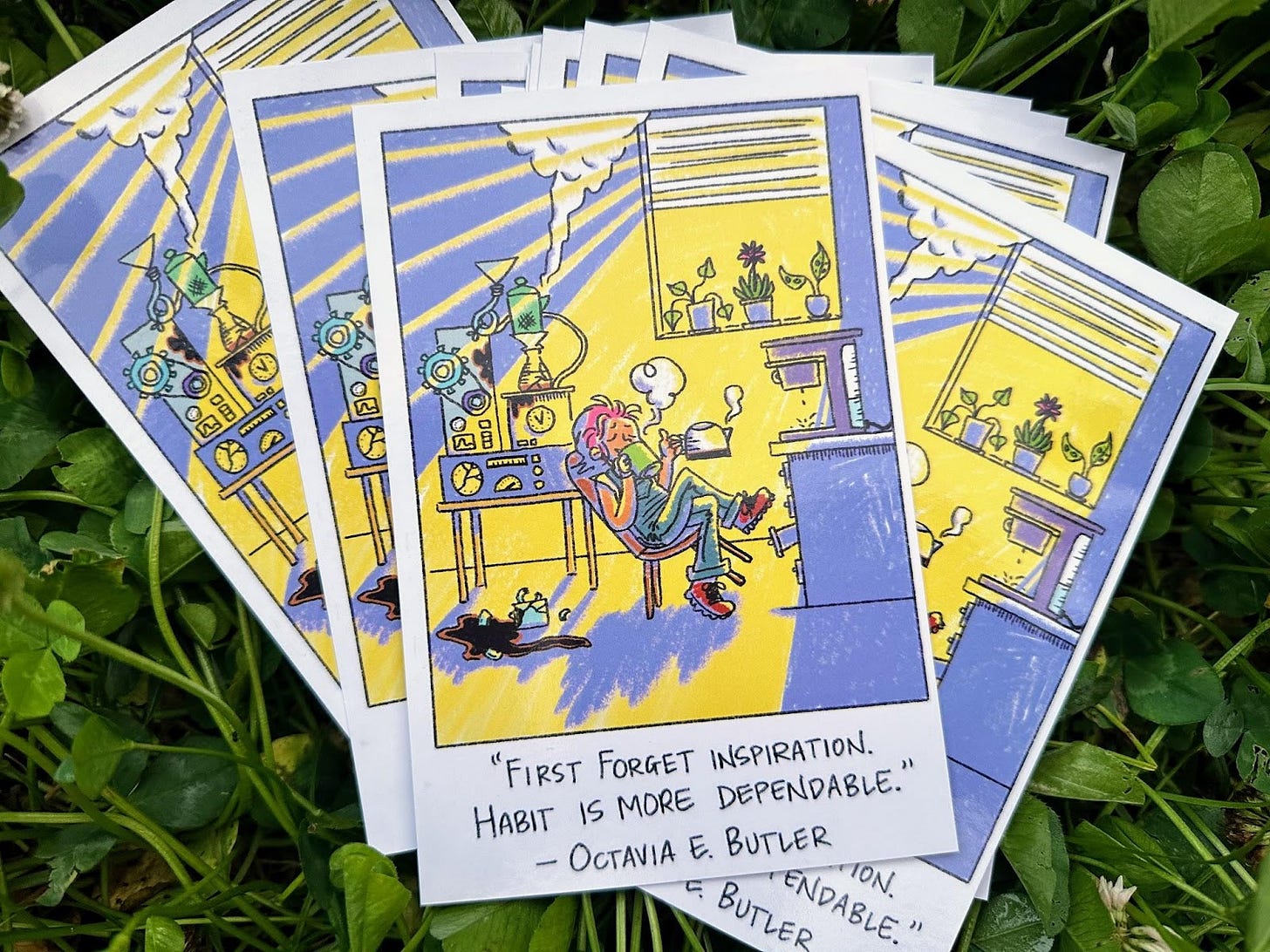
The opposite of a host is not a guest but a parasite — and it’s considered bad form to put out special towels for a tapeworm.
“I’m a particularly loathsome guest and I eat like a vulture. Unfortunately, the resemblance doesn’t end there.”
— Groucho Marx
Hosts and guests are two sides of a coin, though of course no money should pass between them. The words derive from the same root, as does the word hostage. Consider the early SNL skit featuring John Belushi anchored to the couch as The Thing That Wouldn’t Leave (“God, I’m thirsty! Is there anything in the fridge?”).
“We dare not trust our wit for making our house pleasant to our friend, and so we buy ice-creams.”
— Ralph Waldo Emerson
The original word ghosti meant both guest and host specifically because of the deep connection between the two, “a mutual exchange relationship highly important to ancient Indo-European society.” And yet, you can die of hunger waiting for some people to return your dinner invitation.
“Mankind is divisible into two great classes: hosts and guests.”
— Max Beerbohm
That, as Beerbohm argues in his essay “Hosts and Guests,” is how we’ve evolved along with our words. There are natural hosts who keep a stocked drinks cart and jars of olives on hand. Obviously, it helps to have a generous olive budget. These people who arrange things just so are often bad guests.
A bad guest, Beerbohm writes, is either a parasite or a churl, the latter being someone like the freeloading poet Dante, who “received during his exile much hospitality from many hosts and repaid them by writing how bitter was the bread in their houses, and how steep the stairs were.” Poets!
“I always feel that I have two duties to perform with a parting guest: one, to see that he doesn't forget anything that is his; the other, to see that he doesn't take anything that is mine.”
— Alfred North Whitehead
To be perfectly positioned between parasitism and churlishness is to reciprocate the food and drink with good company, “radiating gratitude, but not too much of it; never intrusive, ever within call; full of dignity, yet all amenable; quiet, yet lively; never echoing, ever amplifying; never contradicting, but often lighting the way to truth; an ornament, an inspiration, anywhere.” If you’re particularly winning at this, you can save on room and board and no one will ever call you a mooch.
“It was a delightful visit;–—perfect, in being much too short.”
— Jane Austen
Edward Lear, the master of Victorian nonsense, was a brilliant guest: “He could amuse the children with rhymes and drawings, produce paintings of the local scenery as a hostess gift, regale the dinner table with jokes and stories, and in the evening sing his own musical settings of Tennyson’s poems while accompanying himself at the piano or even on the accordion.”
“Some people can stay longer in an hour than others can in a week.”
— W.D. Howells
Christopher Hitchens recounts that when Kingsley Amis was a particularly underserved guest, he would let his glass drop to the floor and exclaim, “Oh — thank heavens it was empty.” As a host, though, he would say: “I’ll pour you the first one, and after that, if you don’t have one, it’s your own fucking fault. You know where it is.”
“Hospitality, n. The virtue which induces us to lodge and feed certain persons who are not in want of food and lodging.”
— Ambrose Bierce
Guests have historically been likened to fish, going bad after three days. But modern advice on piscine storage suggests no more than two days in the refrigerator. The fact that this saying dates back to 1579 is good reason to reflect on how far food safety has come since then.
“I’ve had a wonderful evening – but this wasn’t it.”
— Groucho Marx
Oh, look how late it is. You really ought to be going. To end, let’s reflect on how the who-would-you-invite-to-an-imaginary-dinner-party game is always less fun than it sounds. And yet the New York Times keeps asking authors in By the Book, despite the fact that Charlie Kaufman absolutely demolished the premise with this answer:
I see Oscar Wilde there, of course, Voltaire, Carol Saroyan Saroyan Matthau (wife of William Saroyan, William Saroyan, and Walter Matthau, and a writer in her own right), Hitler (not witty but quite a “get”), Edie Sitwell, Molière, Oscar Wilde (so witty I thought why not double him and place him on each end of the table so everyone could enjoy his witticisms?), Aristophanes, and Sir Kenneth Dover (to translate Aristophanes’ jokes for the other guests). That’s more than three, but one must assume there will be cancellations. Oh, and Jesus.
Liquid Inspiration, shipping this week
I’m chuffed to unveil Riposte Card No. 5 by
— quite a “get!” — which arrived from the printer this week and is ready to mail to my 36 subscribers. To be clear, each of you sparkling souls will receive a couple blank versions of the above, suitable for sending on or keeping next to your desk as inspiration. And if you subscribe today, there’s still enough room in the envelopes to send you a sampling of the entire glorious back catalogue.Quote Vote
“Perhaps host and guest is really the happiest relation for father and son.”
— Evelyn Waugh
You can invite children into this world, but it’s strictly forbidden to show them out. Something to either reflect upon or avoid thinking about for next week:
Get Wit Quick No. 210 asks what’s your hat and here’s your hurry. My book Elements of Wit: Mastering The Art of Being Interesting is a host gift that will make them wonder what you really think of them. Tap the ❤️ below to sign the guest book.





